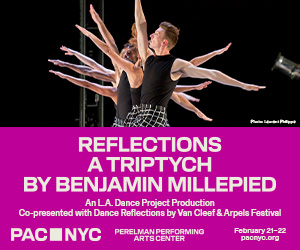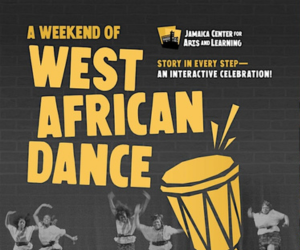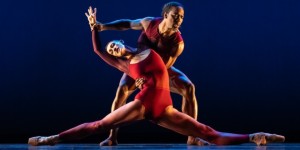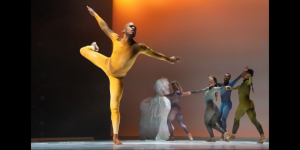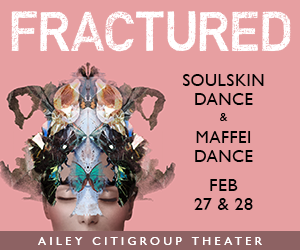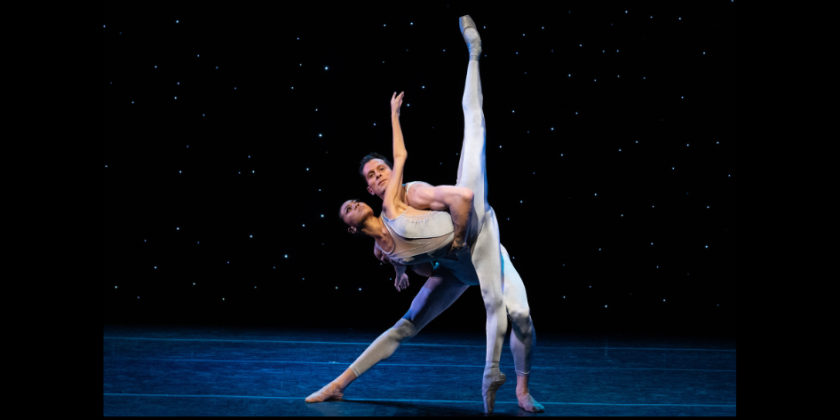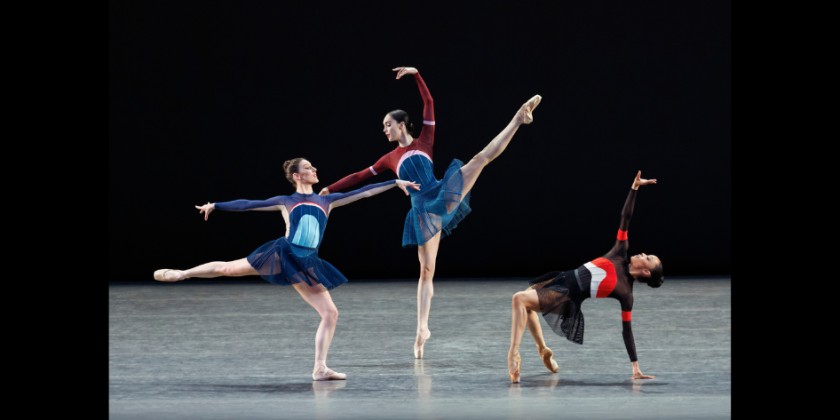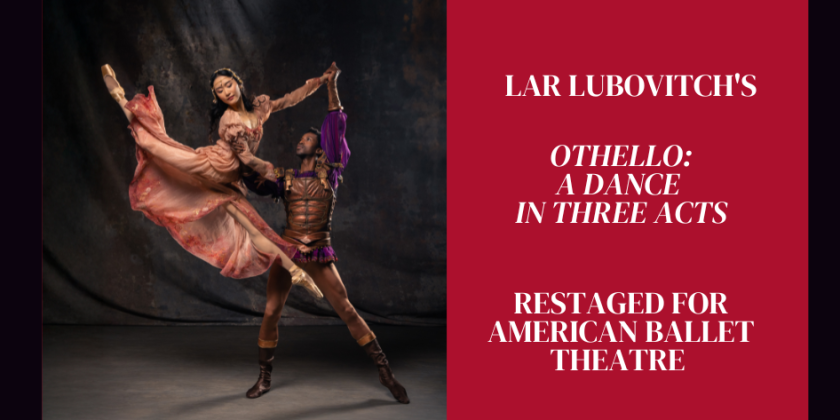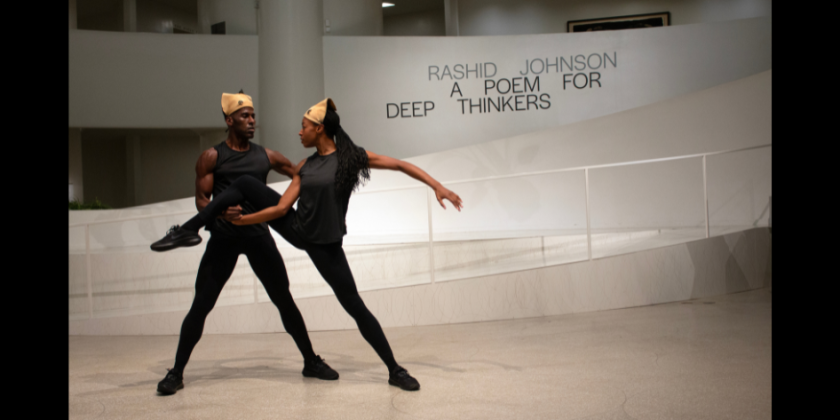IMPRESSIONS: Compagnie DYPTIK in "Le Grand Bal" at The Joyce Theater
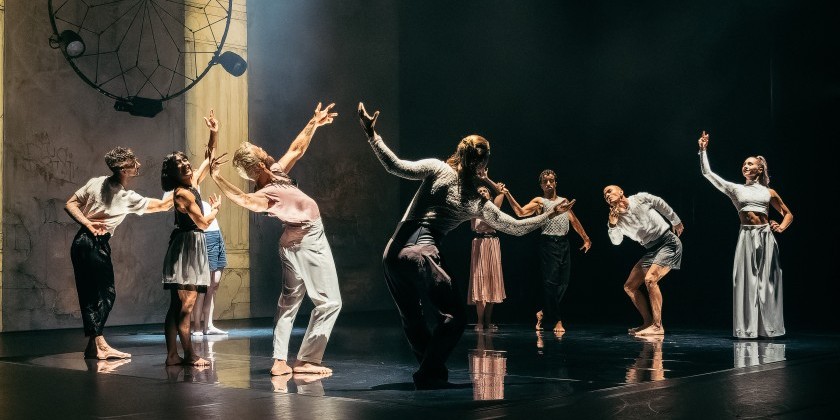
Artistic Direction and Choreography: Souhail Marchiche and Mehdi Meghari
Dancers: Mounir Amhiln, Charly Bouges, Yohann Daher, Nicholas Grosclaude, Hava Hudry, Beatrice Mognol, Davide Salvadori, and Alice Sundara
Music Creation: Patrick De Oliveira
Lighting: Richard Gratas & François-Xavier Gallet-Lemaitre
Scenography: Hannah Daugreilh
Painter: Loïc Niwa
Costumes: Hannah Daugreilh & Sandra Bersot
October 28, 2025
Compagnie DYPTIK's New York debut, Le Grand Bal choreographed by artistic directors Souhail Marchiche and Medhi Meghari, marries fierce physicality with theatrical urgency. Performed by eight extraordinary dancers, the evening channels hip hop’s raw drive into a haunting meditation on confinement and the restless instinct for freedom.
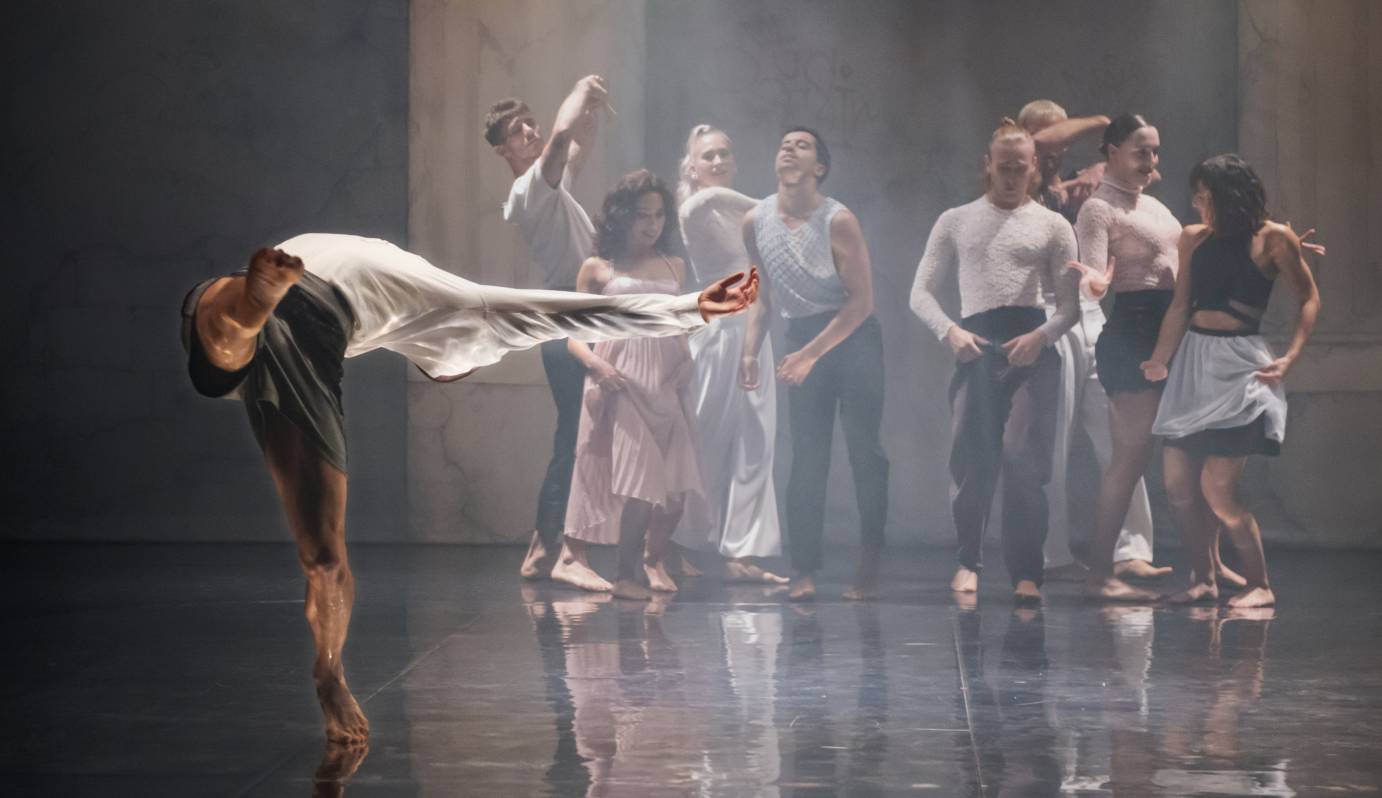
Before the traditional beginning of the piece, the dancers’ world blends into ours. Nicholas Grosclaude stands in The Joyce house center aisle trembling, hunched over, alternating between sobs and unsettling laughter. In back of the audience, Beatrice Mognol, both lost and watchful, stands transfixed beneath a stark spotlight. After the lights dim, cast members, emerge from the audience, popping up one-by-one. They crawl over us, dancing through our seats. Their proximity feels intimate, even risky.
.jpg)
Davide Salvadori. Photo by Romain Tissot
A pounding beat pulses and a high-pitched cackle slices the air from the back of the house. That cackle belongs to Hava Hudry, whose deranged grin is a recurring motif, the embodiment of jubilation tipped into madness. Four dancers lock into jagged shapes, rippling down a line they form in the center of the audience. By the time the entire ensemble of eight reaches the stage, each dancer crawling up to it, their world becomes more manic.
A massive dream catcher suspended upstage looms, echoing the circular formations the dancers weave through. It cradles multiple lights which cast shifting shadows, adding texture to Richard Gratas’ and François-Xavier Gallet-Lemaitre’s brilliant lighting design. Spanish vocal samples (“Para mí, para ti,” “for me, for you”) meld into the electronic surge, and the dancers sing along, introducing a bold, carnival-like theatricality. As the lights beam the dancers morph into ringmasters and showpieces.
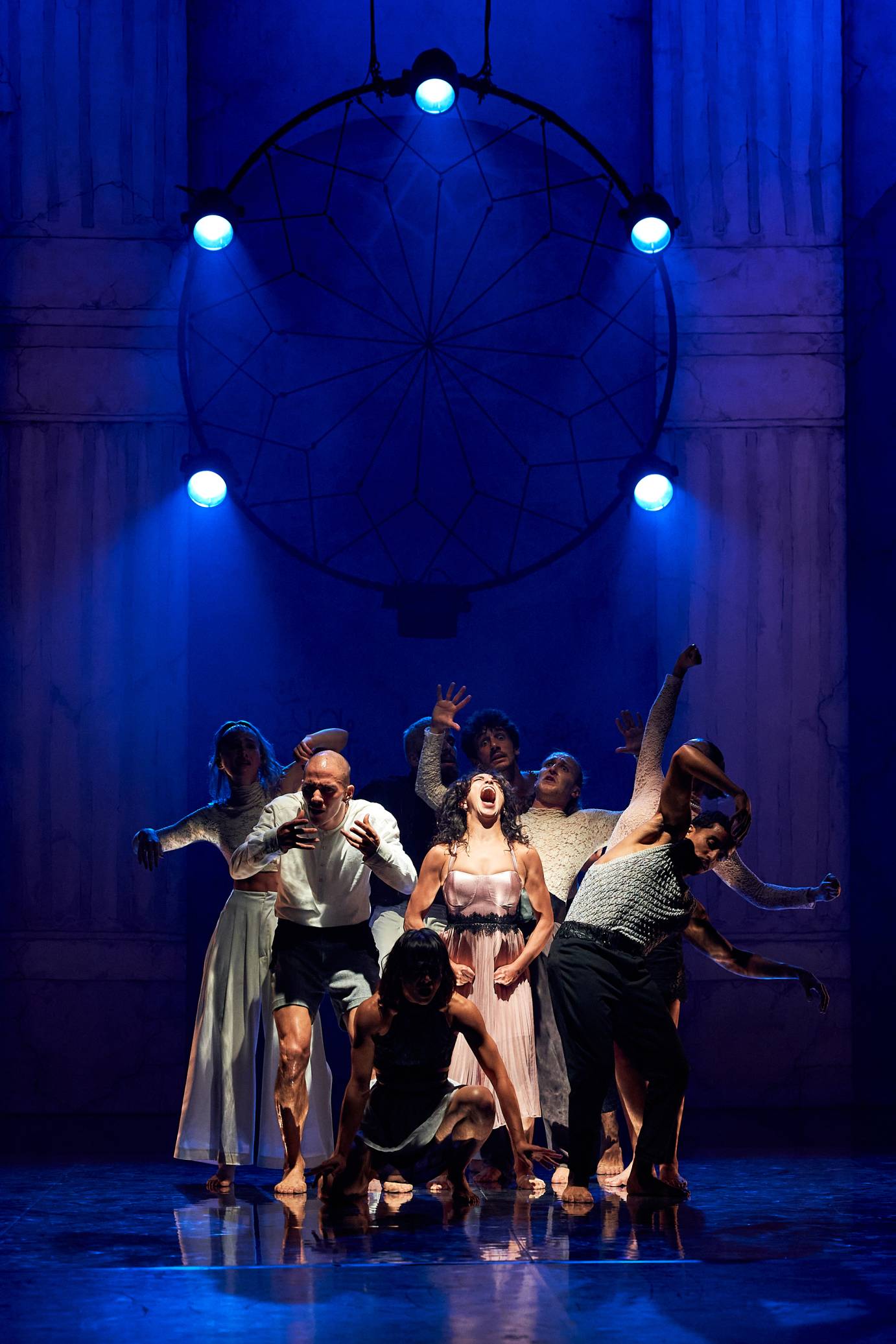
At the heart of this charged ecosystem is the constant bounce between individual and collective agency. Dancers repeatedly break from the pack only to find themselves encircled by it again. Hudry commands the stage midway through the work, her arms spread in an eerie welcome as the ensemble swarms around her. Grosclaude inhabits the duality of tension and release inherent in the piece. His extreme backbends and animalistic floor work suggest sensitivity and rupture.
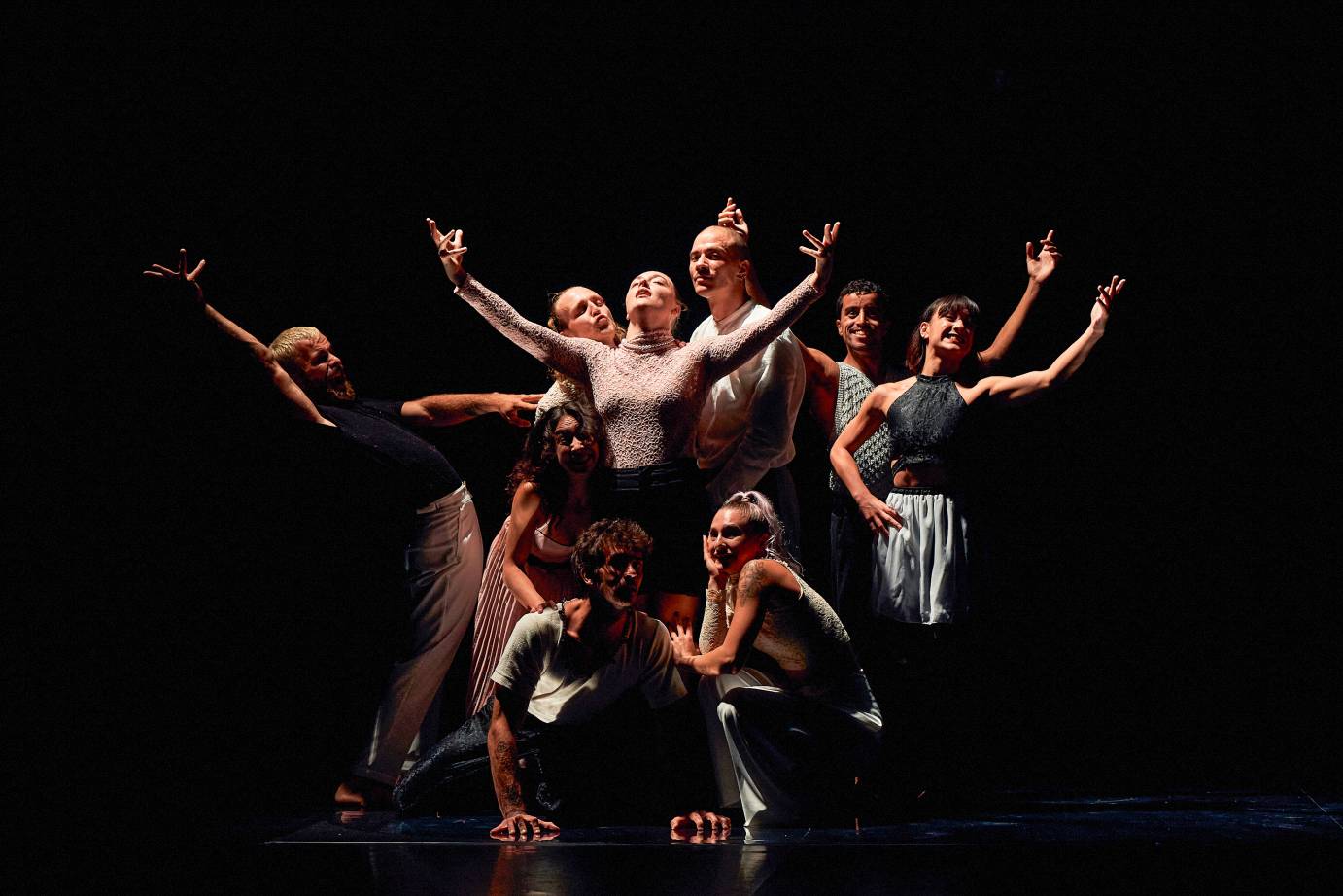
Throughout the relentless shifting, the eyes of Le Grand Bal’s inhabitants never dull. These characters possess an inexhaustible instinct to press forward. Bouncing up and down, they pulse their arms in rapid speed, urging us to rise and join their whirlwind. In slower moments, they clutch at their necks, clawing at their bodies and extending their hands towards us and each other. At times, it feels like a party. It also feels like being trapped in a dream.
Le Grand Bal leaves us suspended between fantasy and reality, where collective movement paves the way towards freedom. This blazing work is a masterpiece not to be missed.
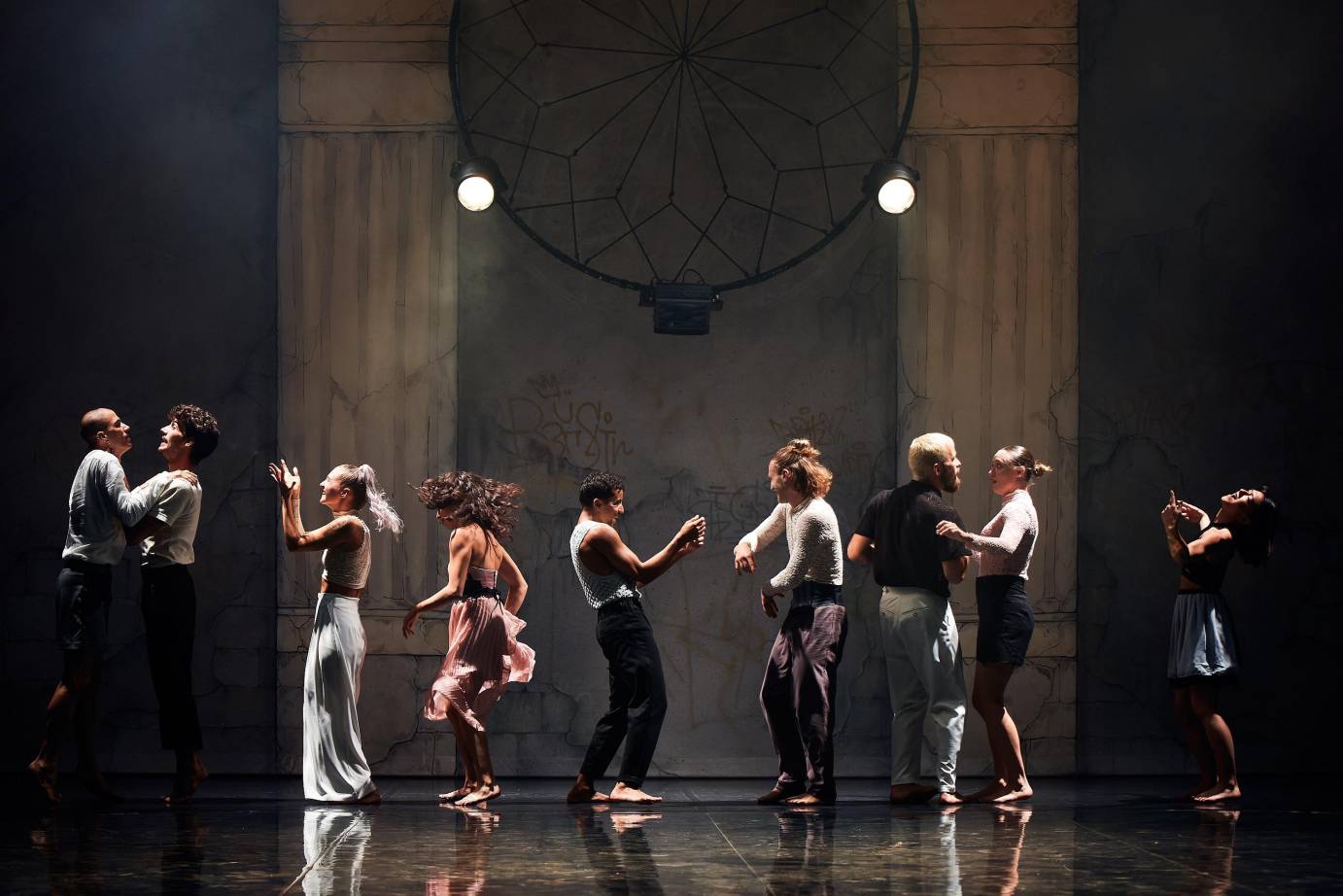
Compagnie DYPTIK's Le Grand Bal. Photo by Romain Tissot




